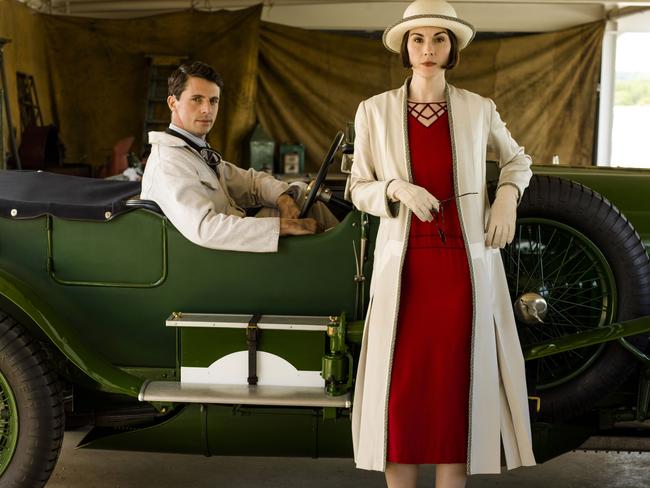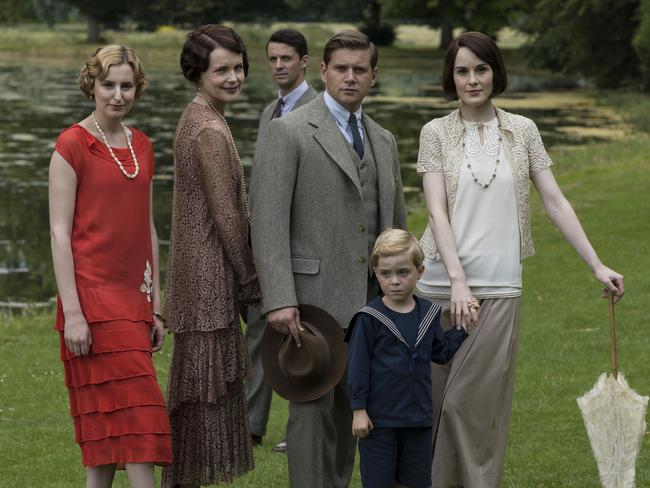Five ways Downton Abbey changed TV
AS Downton Abbey closes its doors for the final time this week, we take a look at how this British drama achieved global acclaim and changed our world.
AS Downton Abbey closes its doors for the final time, we take a look at how this British costume drama achieved global acclaim.
1. It’s made stuffy costume drama cool again
Downton Abbey brought a format often only seen on networks like the BBC in Britain, and ABC in Australia, and made it accessible to everyone.
“I think one of the things that Downton has done, is explode the myth that period drama has to be highbrow or in the literary genre,” says Executive Producer, Liz Trubridge.
Even though the storylines are set in a bygone age, viewers can relate to what characters are going through. And having gorgeous sets and costumes makes it all the more fun.
“I don’t think it’s overstating it to say that Downton has taken a much-loved British genre — the period countryhouse drama — and given it a complete overhaul for the 21st century, borrowing from the compelling storylines of soap opera to the quality writing and production values of contemporary U.S. television shows,” says Executive Producer, Gareth Neame.
Shows like Mr Selfridge and Ripper Street — both successful series that have premiered in the past few years — owe much to their predecessor.

2. It’s showed the Yanks how it’s done
Downton is a British format that found an audience in the States — not the other way round. In the process it was a game-changer for US networks and producers, who realised there was an audience for this type of drama.
Fellowes admits the show’s success took him by surprise.
“That was a rather extraordinary moment: to realise you’d written a show that was reaching parts [of popular culture] that other shows don’t reach,” he says.
The series finale was watched by 9.9 million viewers in the US, and was nominated for an Emmy award every year it aired.
3. It’s epic in scale
Everything about Downton is on a grand scale, from the setting — beautiful Highclere Castle, where it’s filmed — to the costumes, set dressing, and even the storylines.
Downton’s six series span one of the most tumultuous decades in modern history. Everything from the introduction of electricity and the automobile, to the First World War and the Spanish flu is covered — and that’s just for starters.
Producers never shied away from tackling political and social issues too, talking about everything from the rise of fascism in the 1920s, to the establishment of the women’s suffragette movement.

4. Dame Maggie Smith!
Let’s face it, the Dowager Countess’ pithy asides and biting insults are the sole reason many of us tune in. There are far too many to list here — but a quick google search will yield her best humdingers.
5. The way it talks about class and status
It should be really easy to hate the Crowley family — after all, they’re obscenely rich, privileged and have a legion of servants attending their every whim — but the way Fellowes has written them means we’re rooting for all the “upstairs” characters from the get-go, flaws and all. Similarly, the servants below stairs were equally complex and three-dimensional, and we’re just as invested in seeing them get their happy endings as well.
What to expect from the finale
Fellowes admits he was thinking of ending Downton after its fifth season, but he still felt there were more stories to tell. That said, he was conscious of not overstaying his welcome.
“You want to leave a party while people are still sorry to see you go, rather than waiting for them to be thrilled that you’re leaving,” he says.
So what does this mean? Without giving too much away, let’s just say everyone gets a “satisfactory conclusion.” Fellowes-speak for a happy ending? Let’s hope so.



